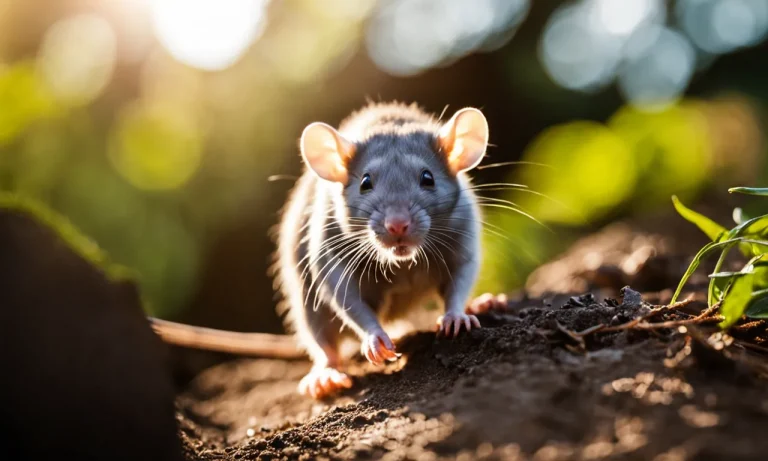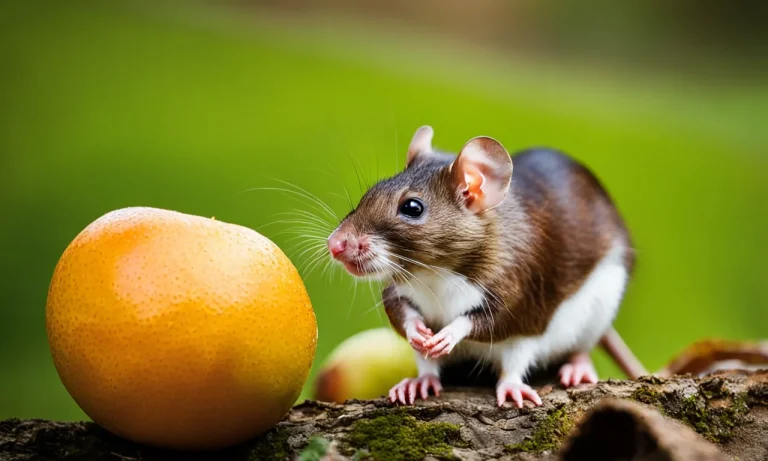Bunnies are adorable, fluffy pets that many households welcome into their families. As a responsible bunny owner, you want to make sure you are feeding your rabbit a healthy diet. One common question that comes up is whether bunnies can eat bread.
If you’re short on time, here’s a quick answer to your question: Bread should only be fed to bunnies in very small amounts, as an occasional treat. The simple carbs and lack of nutrients don’t make it a good regular part of their diet.But small pieces of whole grain bread are OK for bunnies in moderation.
In this comprehensive article, we will dive into the details on bread and bunny diets. You’ll learn about the different types of bread, nutrient information, what veterinarians recommend, and how much bread bunnies can safely eat.
An Overview of Bunny Dietary Needs
When it comes to the diet of bunnies, it’s important to understand their specific needs in order to keep them healthy and happy. Bunnies are herbivores, which means their diet should consist mainly of plant-based foods.
While they can eat a variety of foods, it’s crucial to provide them with a balanced diet that meets their nutritional requirements.
Mostly Hay and Leafy Greens
The majority of a bunny’s diet should consist of hay and leafy greens. Hay is an essential part of their diet as it provides them with fiber, which is crucial for their digestive system. It also helps to wear down their teeth, which continuously grow throughout their lives.
Leafy greens such as romaine lettuce, kale, and parsley are also great options as they provide additional nutrients and hydration. However, it’s important to introduce new greens gradually to avoid digestive upset.
Limits on Pellets and Treats
While pellets and treats can be a part of a bunny’s diet, they should be given in moderation. Pellets should be high in fiber and low in sugar, and they should make up only a small portion of their overall diet.
Treats, on the other hand, should be given sparingly and should be healthy options such as small pieces of fruits or vegetables. It’s important to avoid giving them sugary or fatty treats as these can lead to health issues such as obesity and dental problems.
Importance of Fiber and Nutrients
Fiber is an essential component of a bunny’s diet as it helps to maintain a healthy digestive system. High-fiber foods such as hay and leafy greens promote proper digestion and prevent issues like gastrointestinal stasis.
In addition to fiber, bunnies also require a variety of nutrients to stay healthy. These include vitamins, minerals, and protein. Providing a diverse range of vegetables and occasional fruits can help ensure they receive the necessary nutrients.
Remember, it’s always a good idea to consult with a veterinarian or a rabbit specialist to ensure you’re providing the best possible diet for your bunny. They can offer tailored advice based on your bunny’s specific needs and help you create a well-balanced diet plan.
Nutritional Profile of Bread
High in Carbs
Bread is primarily made from wheat flour, which is a rich source of carbohydrates. Carbohydrates are the body’s main source of energy, so consuming bread can provide a quick boost of energy. However, it’s important to note that not all carbohydrates are created equal.
Some breads, especially those made from refined grains, can cause a rapid increase in blood sugar levels, leading to a spike in insulin. This can be problematic for individuals with diabetes or those trying to manage their blood sugar levels.
Therefore, it’s advisable to choose whole grain breads, which are higher in fiber and have a lower glycemic index.
Low in Fiber
One drawback of bread is its relatively low fiber content. Fiber is an essential nutrient that aids in digestion, helps maintain a healthy weight, and lowers the risk of heart disease. While whole grain breads do contain more fiber than their refined counterparts, they still fall short compared to other sources such as fruits, vegetables, and legumes.
To increase your fiber intake, it’s recommended to incorporate a variety of high-fiber foods into your diet alongside bread.
Lack of Key Vitamins and Minerals
Bread is not typically a significant source of essential vitamins and minerals. While some breads may be fortified with nutrients like folate, iron, and B vitamins, the amounts can vary. It’s always a good idea to check the nutritional label if you are looking for specific nutrients.
To ensure a well-rounded and balanced diet, it’s important to include a variety of foods that provide a wide range of nutrients.
Veterinarian Recommendations on Bread
Occasional Treat in Moderation
Bunnies can enjoy bread as an occasional treat, but it should not be a regular part of their diet. According to veterinarians, bread is not a natural food for rabbits and does not provide them with the necessary nutrients they need to thrive.
However, a small piece of bread once in a while can be given to your bunny as a special treat. Just remember to keep it in moderation and not make it a daily habit.
Caution with Moldy or Stale Bread
When giving bread to your bunny, it is important to be cautious about the quality of the bread. Moldy or stale bread should never be given to rabbits as it can be harmful to their health. Moldy bread can contain toxins that can cause digestive issues and even lead to serious health problems.
Always ensure that the bread you offer to your bunny is fresh and free from any signs of mold or staleness.
Whole Grains Are Best
If you decide to treat your bunny with bread, it is recommended to choose whole grain options. Whole grains are healthier for rabbits as they contain more fiber and nutrients compared to refined grains.
Fiber is essential for a rabbit’s digestive system, and whole grain bread can contribute to their overall well-being. Remember to offer small portions of whole grain bread and not make it a regular part of their diet.
For more information on rabbit nutrition and diet, you can refer to reputable sources such as the House Rabbit Society or consult with a rabbit-savvy veterinarian.
Guidelines for Feeding Bread to Bunnies
Stick to 1-2 Bites Max Per Day
While bunnies may enjoy the taste of bread, it is important to limit their consumption. Bread should only be given to bunnies as an occasional treat and in small quantities. Stick to just 1-2 bites per day to ensure that they are not overindulging.
Feeding them too much bread can lead to weight gain and digestive issues.
Avoid Feeding Daily
Bunnies have very delicate digestive systems, and their diet should primarily consist of hay, fresh vegetables, and a small amount of pellets. Feeding bread to bunnies daily is not recommended as it can disrupt their digestive balance and cause gastrointestinal problems.
It is best to reserve bread as an occasional treat and not make it a regular part of their diet.
Introduce Slowly
If you decide to give your bunny a small piece of bread as a treat, it is important to introduce it slowly. Start by offering a tiny piece and observe how your bunny reacts. Some bunnies may not have any adverse effects, while others may experience digestive discomfort or allergies.
By introducing bread slowly, you can monitor their reaction and adjust accordingly.
Watch for Signs of an Allergy
Just like humans, bunnies can also develop allergies to certain foods, including bread. If you notice any signs of an allergic reaction such as itching, sneezing, or diarrhea after feeding bread to your bunny, it is best to discontinue giving them bread.
It is always important to consult with a veterinarian if you suspect your bunny is experiencing an allergic reaction.
Healthy Bunny Diet Tips
When it comes to maintaining a healthy diet for your bunny, there are a few key tips to keep in mind. By following these guidelines, you can ensure that your furry friend is getting the nutrition they need to thrive.
Include Plenty of Hay
Hay is an essential part of a bunny’s diet. Not only does it provide important fiber that aids in digestion, but it also helps keep their teeth healthy and worn down. Make sure to offer a variety of hays, such as Timothy, Orchard, or Meadow, to keep your bunny interested and to provide different nutrients.
Offer Fresh Greens Daily
In addition to hay, fresh greens should be a regular part of your bunny’s diet. Leafy greens like kale, spinach, and romaine lettuce are great options. These greens provide important vitamins and minerals, as well as hydration.
However, be sure to introduce new greens gradually to avoid digestive upset.
Limit Pellets
Pellets can be a part of a bunny’s diet, but they should be limited. Pellets are high in calories and can lead to obesity if given in excess. A general guideline is to offer about 1/4 cup of pellets per day for a 5-pound bunny. Always choose high-quality pellets without added sugars or fillers.
Treats Only in Moderation
While it can be tempting to spoil your bunny with treats, it’s important to remember that treats should only be given in moderation. Too many treats can lead to weight gain and potentially dental issues.
Opt for healthier treat options like small pieces of fruit or vegetables, and limit them to a few times a week.
Remember, every bunny is unique, so it’s important to consult with a veterinarian to determine the best diet for your specific pet. By following these healthy bunny diet tips, you can ensure that your furry friend is on the right track to a long and happy life.
Conclusion
In the end, bread should only be an occasional treat for bunnies. While small amounts of whole grain bread are generally safe, bread lacks key nutrients rabbits need from hay, greens, and pellets. Follow the feeding guidelines outlined here, and be sure to check with your vet if you have any concerns about adding bread or other new foods to your bunny’s diet.
With the right dietary foundations and just the occasional nibble of bread as a treat, your bunny companion can live a long and healthy life!






